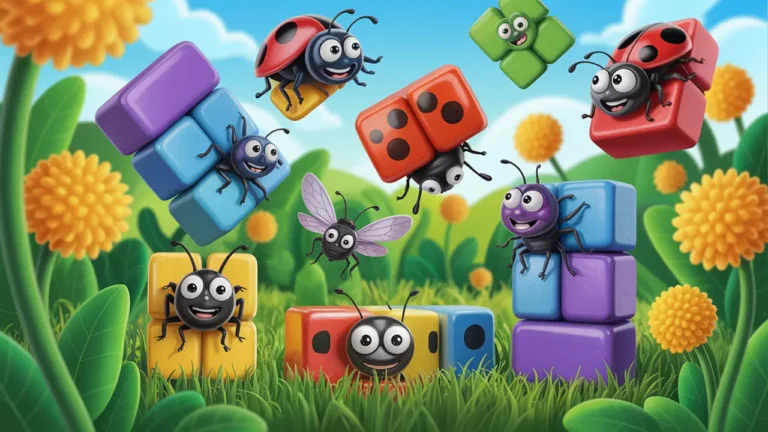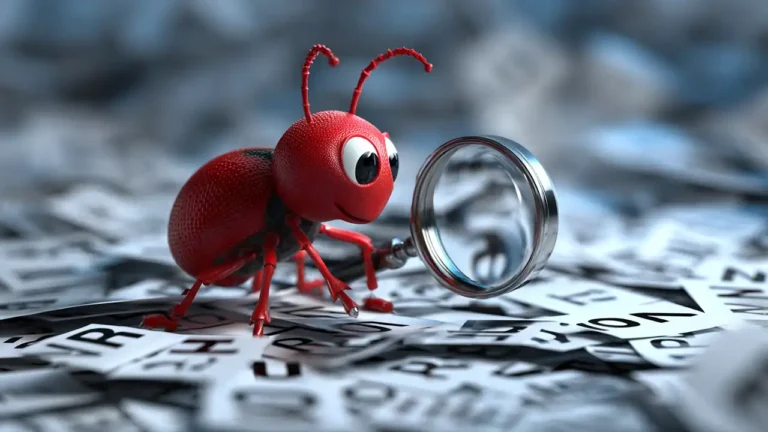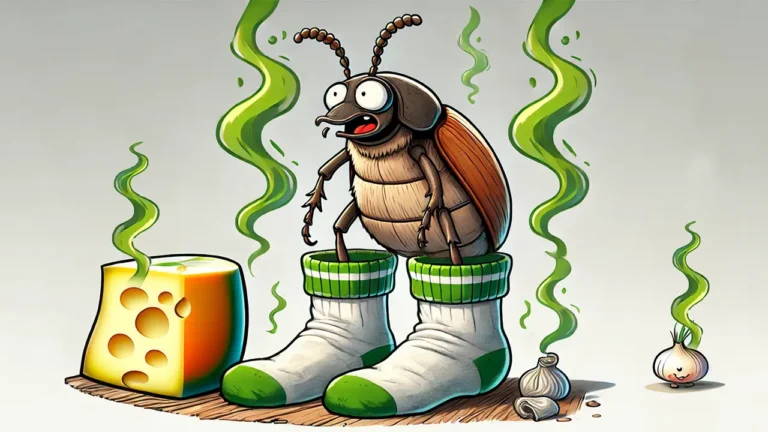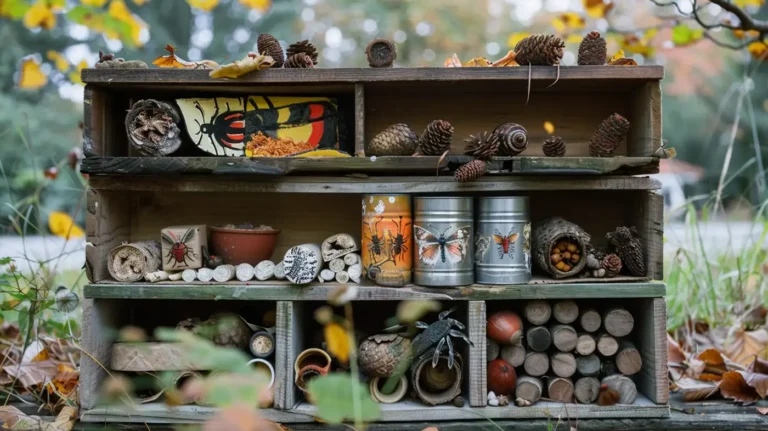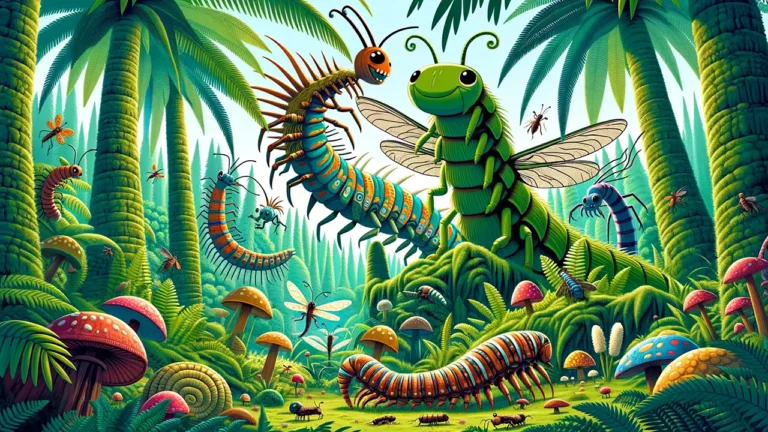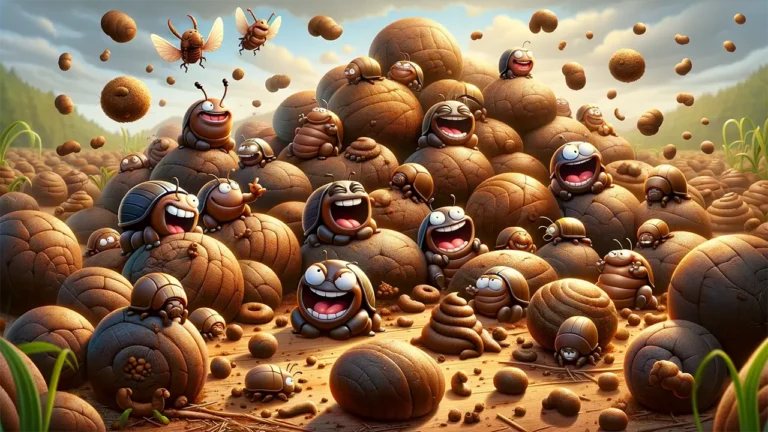Welcome to the educational space of Little Bug Lovers! As a parent, carer or teacher, you may be wondering why your child is fascinated with crawling and flying critters. Rest assured, this interest is completely natural and healthy. Insects hold an endless source of fascination and discovery for curious young minds.
An early interest in nature and science fosters critical skills like observation, analytical thinking, and environmental awareness. Nurturing your child’s budding curiosity about the insect world will provide a lifetime of rewards. Beyond building knowledge and appreciation for the natural world, you are helping shape the next generation of enthusiastic entomologists!
As partners on this bug-loving journey, we created this guide to help you channel your child’s innate curiosity. The insect realm offers so much intrigue and opportunity for learning. With some basic tools and tips for exploration, your backyard or neighbourhood park transforms into an entomology laboratory!
This is just the start of discovering the joy and legacy of insects with your young explorer. Let their sense of wonder about butterflies, beetles, and bees encourage your own appreciation for these tiny marvels. Tapping into a shared fascination will guide them towards a future where they can confidently pursue their scientific passions with an awesome opportunity to bond with your child.
So grab your magnifying glass and let’s start investigating! The insect world is buzzing with adventure waiting to be uncovered.
Starting Them Young
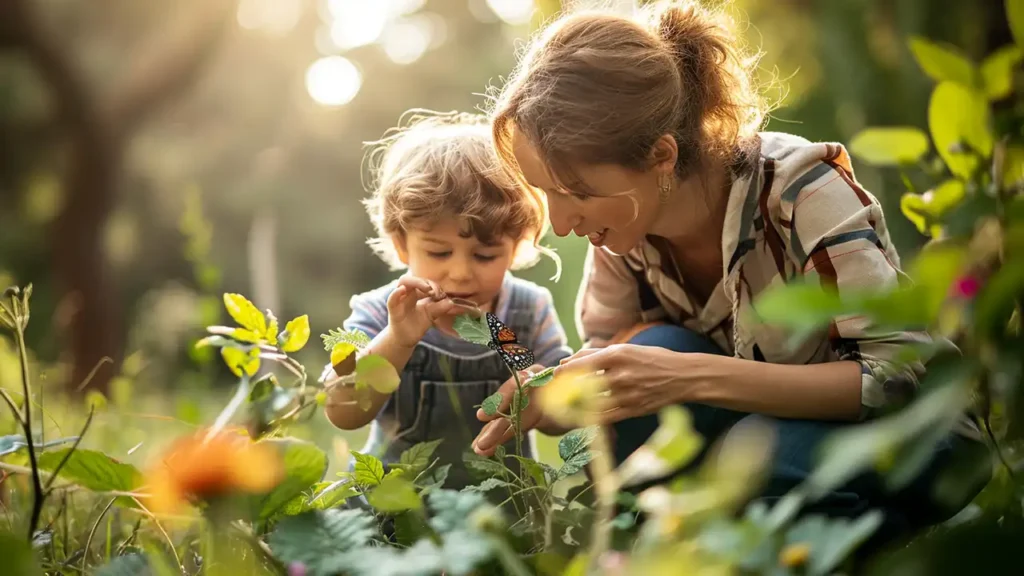
Nurturing a love of science and nature starts early! As a parent, you play a vital role in encouraging your child’s curiosity. You may notice your little one starting to take interest in the insect world through:
- Frequent bug-catching attempts in the backyard
- Asking a million questions about that spider crawling up the window
- Pretend play of being a fluttering butterfly or busy bee
- Excitedly pointing out ants marching on the sidewalk
These show your child is ready for you to cultivate their fascination! With some guidance about respect and safety, insects can unlock captivating lessons from your own backyard.
Why Insects?
Insects provide the perfect gateway into learning about science and nature. Here’s why they make ideal “starter bugs” to spark a lifelong passion:
- Abundant – Over a million insect species means endless opportunities for discovery.
- Diverse – From inch-long stick insects to iridescent blue morpho butterflies, insects inspire awe.
- Accessible – No expensive equipment needed to find insects in your garden or neighbourhood park!
- Adaptable – Insects inhabit rainforests, deserts, backyard playgrounds, showing flexibility.
- Important – Bees, dragonflies, and other insect species are vital to ecosystems humans depend on.
So let your child’s enthusiasm about insects jumpstart meaningful scientific curiosity and knowledge!
Easy and Fun Ways to Learn About Insects
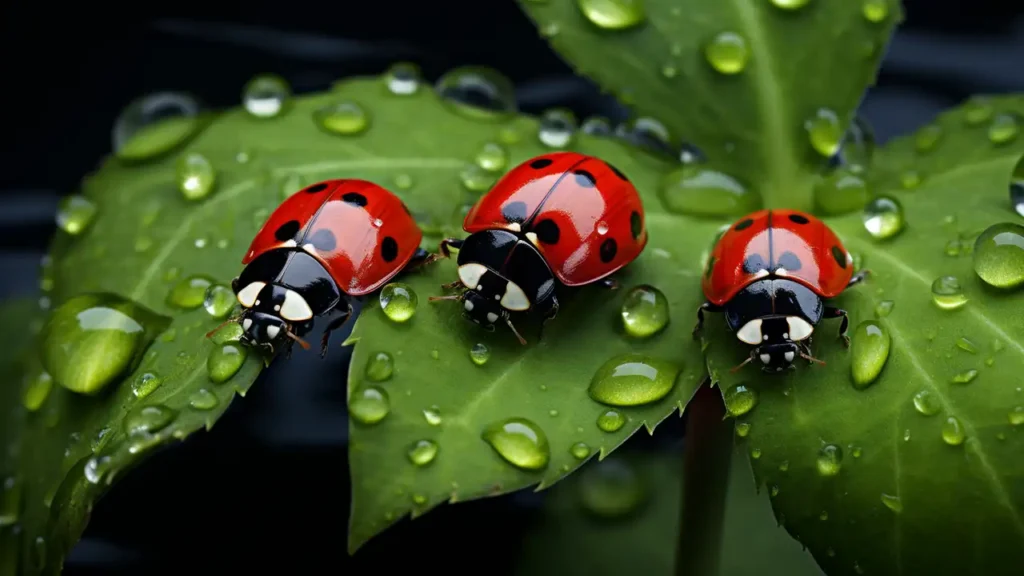
The great thing about insect exploration is you don’t need fancy equipment or expensive trips. Simple activities can ignite your child’s passion right at home. Mix and match from these fun ideas for easy insect learning adventures:
Indoor Activities
- Read picture books or longer works of insect fiction together. Compare what you’ve read to real life observations.
- Watch age-appropriate insect documentaries that highlight unique abilities, habitats, and life cycles.
- Explore kid-friendly websites and mobile apps covering different insects. Many have interactive games or quizzes.
- Craft projects allow creativity and insect appreciation – make pipe cleaner ants, toilet paper roll caterpillars, or cardboard beetles.
- Set up an indoor play area with insect-themed costumes, plastic bugs, and toys for pretending all sorts of scenarios.
Outdoor Discovery
- Head out on a neighbourhood insect safari or scavenger hunt around the backyard using a beginner field guide.
- Practice observational skills by examining insects found under logs, rocks, bushes, and flower beds.
- Catch and release butterflies or lightning bugs in a safe container with holes. Discuss habitat needs.
- Build beneficial insect houses from recycled materials and natural objects that promote conservation.
- Plant native flowers, vegetables, and herbs which attract living laboratories of pollinators to examine.
Learning through interactive play builds a foundation of understanding the insect world that textbook readings alone often cannot. As your child’s interests evolve, you can explore more advanced entomology experiments too! The main goal is keeping it fun and hands-on.
Equipping Them with Tools
Having the right gear makes your backyard bug quests all the more exciting and educational for your aspiring entomologist. You don’t need anything too complex or pricy to facilitate hands-on investigating. Consider these kid-friendly tools:
Basic Field Guides: Choose age-appropriate guides covering common backyard insects or those found in your region. Laminated pages and large pictures suit young explorers. Check descriptions match your location.
Magnification Aids: Standard magnifying glasses offer closer inspection without cost. Higher-power options like an optic hand lens reveal microscopic details.
Capture Containers: Have sealable plastic jars with tiny air holes to briefly examine insects up close before release. Include leaves or grass for comfort.
Nets and Tweezers: Butterfly nets help gently catch winged insects. Opt for soft fabric varieties. Tweezers allow precise handling of small specimens.
Intro Entomology Kits: Many kids’ bio explorer sets have starter butterfly rearing habitats, basic tools, logbooks and more for structured discovery.
Nature Journals: Record in scrapbooks observations, insect anatomy diagrams, habitat notes, questions and photos from outdoor adventures.
The right tools offer safe, ethical methods to temporarily collect insects for observations. Guide your young one on proper handling techniques before any capture attempts! Continue revisiting respect for life as curiosity grows.
Going on Expeditions
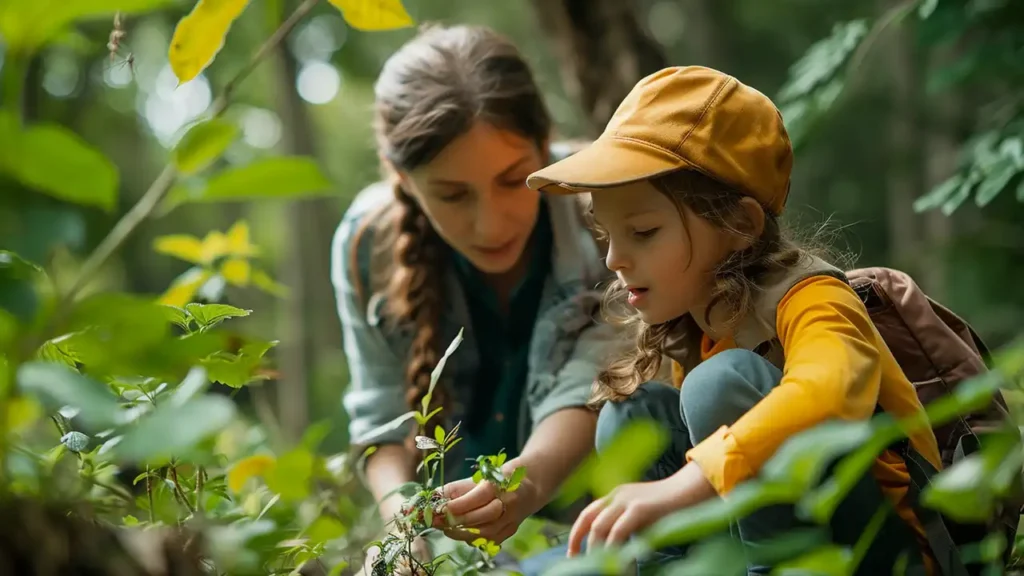
Backyards and neighbourhood parks offer an abundance of insects for your budding entomologist to explore. Before heading out on hometown expeditions, discuss tips like:
- Check weather conditions – go after sunny days when more insects are active.
- Apply insect repellent to avoid bites and stings if desired.
- Pack water, snacks, first aid supplies for longer outings.
- Make a plan if you get separated – have a meeting spot.
- Respect all living creatures by not damaging habitats.
Then let those compound eyes and antennae-topped heads lead the adventure! Here are ideas for beginner bug hunt outings:
Backyard Inspections
Investigate familiar ground – under patio furniture, gnarled trees, woodpiles, and flower beds offer hidden hotspots. See what changes across seasons.
Park Quests
Parks and nature reserves offer rich biodiversity for comparisons. Search new micro-habitats like ponds.
Botanical Bug Hunts Explore public gardens to witness specialized pollinator relationships first-hand and learn plant ID tips.
Butterfly Counts
Visit open fields and meadows during migration seasons to identify winged beauties stopping to fuel long astonishing journeys.
Wherever you roam, encourage figuring out what attracts certain insects, asking questions, or sketching interesting specimens in a nature journal. Making even brief backyard expeditions into engaging adventures nurtures lasting curiosity. Each immersive experience builds observational skills and fuels your young entomologist’s passion to learn more about the hidden worlds all around us.
Creating an Insect-Friendly Environment at Home
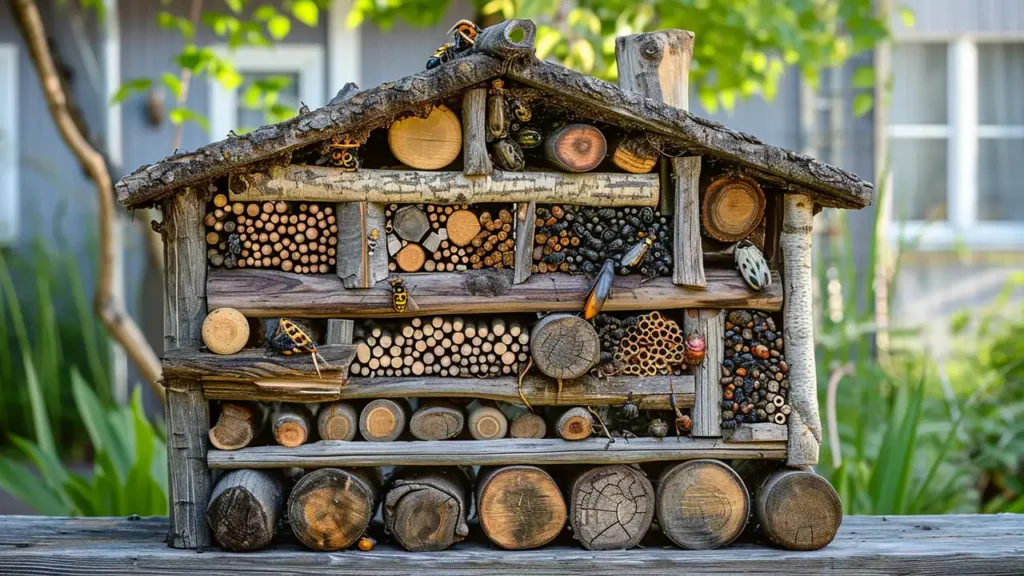
One of the best parts of encouraging your child’s insect curiosity is transforming your own backyard or garden into a living laboratory buzzing with life! Welcome tiny creatures by crafting hospitable habitats and observation spaces:
DIY Bug Hotels
Build your own bug hotel by upcycling materials like wood, bamboo, pinecones, leaves, straw and more into nooks and tunnels for shelter. Place near flowering plants.
Butterfly and Insect Gardens
Research native plant species that provide ample nectar for adult butterflies and caterpillar host foliage. Consider milkweed, coneflowers, and asters.
Bee Baths and Feeders
Create mini “watering holes” from shallow pans filled with pebbles. Mix syrup blends mimicking nectar for feeders.
Windowsill Bugs
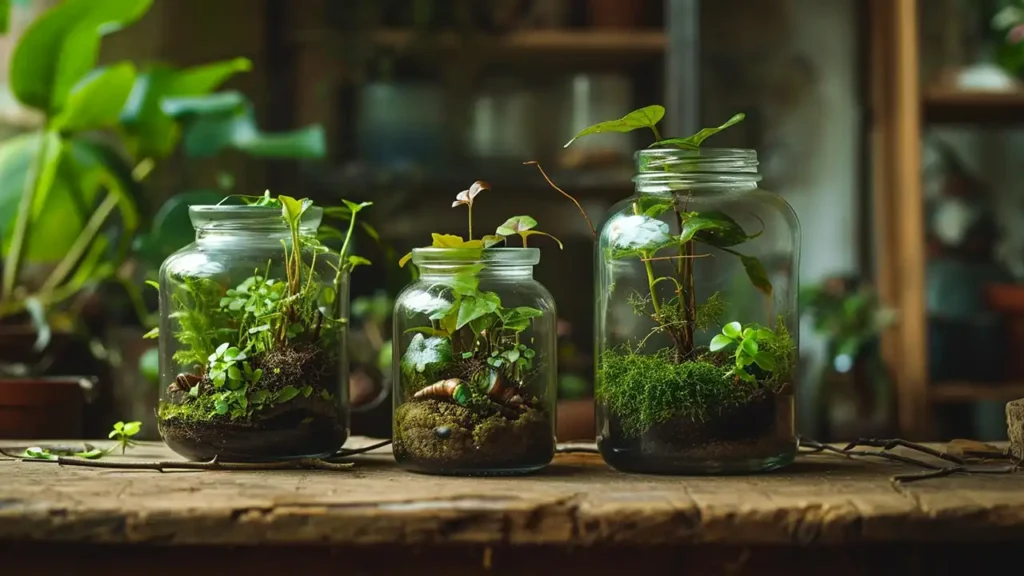
Build mini terrariums in glass jars filled with soil, sticks, and leaves housing gentle creatures like millipedes, pill bugs or snails for indoor observation.
Observation Areas
Set up a dedicated bug watching space with field guides, magnifying glasses, notebooks and comfortable seating to promote immersive, independent exploration in a safe supervised area.
Inspire wonder by crafting an entomologist’s paradise just outside your door! This hands-on environmental stewardship teaches volumes about interconnected ecosystems too complex for any textbook to capture.
Cultivating Curiosity
A lifelong love of insects and science blooms from early chances to nurture natural curiosity. Insects offer countless openings to spark meaningful teachable moments. You can help cultivate an inquisitive, analytical mindset:
Encourage Questions
Foster engagement by asking open-ended questions about observations. If unable to identify a spider’s intricate web, model researching together instead of shutting down interest.
Highlight Unique Traits
Note distinctive features you spot like horned beetles, fuzzy bees, or bright orange ladybug spots. Discuss what advantages these offer.
Observe Life Cycles
Insects like butterflies and mosquitoes undergo metamorphosis. Raise caterpillars into butterflies or note froghoppers in different growing phases.
Conduct Mini-Experiments
Make a bug pyramid to note who climbs highest. Test light avoidance by moving containers into bright and shaded areas.
Appreciate Nature’s Connections
Examine interdependency – how plants, animals and humans all depend on essential pollinators for instance.
An inquisitive mind is perhaps the most valuable outcome developing early research skills provides. Fuel your child’s curiosity to equip them to tackle subject matter far beyond just the insect realm!
Considering Creepy Crawlies

For parents who cringe at the thought of handling insects, overcoming reservations opens up a world of rewarding learning opportunities. Start small with more charismatic bugs to ease comfort levels. Here’s how to expand perspective:
Begin with Butterflies
Who isn’t mesmerized by the paintbrush patterns of fluttering wings? Follow their graceful flight through gardens noticing how they sip nectar.
Progress to Petting Zoos
Many museums have interactive insect exhibits allowing kids to gently handle specimens, changing minds through touch.
Focus on Roles
Shift from appearances to appreciate vital pollination services even a fearful crawly field mouse provides, developing respect.
Set an Example
Model courage and an open mind by handling experiences outside your comfort zone – if kids see pros and cons weighed fairly, opinions can adapt.
Practice Compassion
Consider an ant’s resourcefulness at work, how beetles aid decomposition, or bees’ sophisticated communication. This fosters empathy.
Approaching insects with an open heart instead of an instinctive shudder can work wonders! Curiosity replaces fear with fascination if kids are guided to walk in small shoes.
Safety and Ethics in Insect Exploration
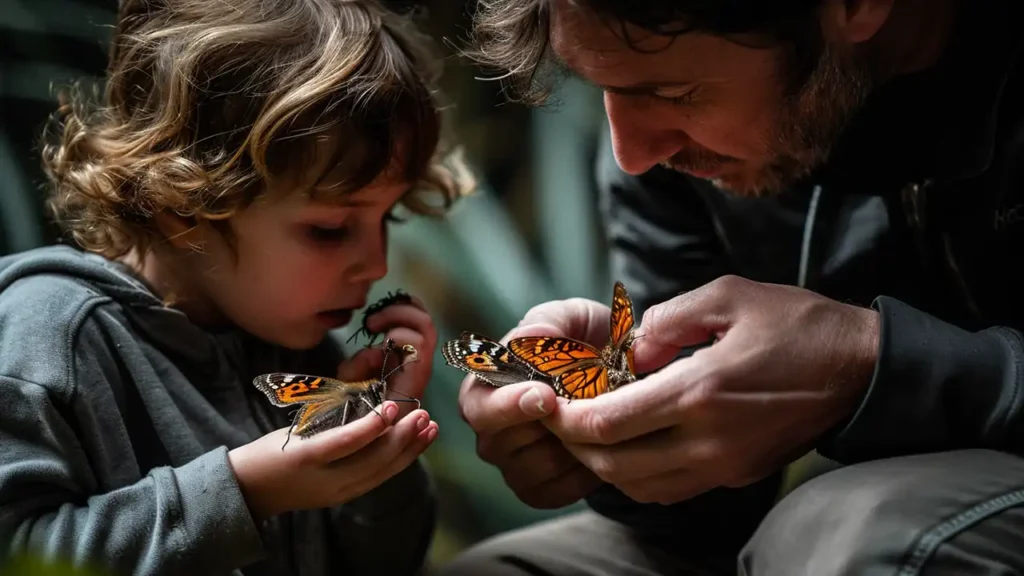
Before setting out to uncover hidden insect worlds, establish some ground rules. Safety and ethics should frame every exploration to build awareness and accountability:
Safety First
- Learn how to gently catch insects to avoid being bitten or stung
- Recognize hazardous areas like bee and wasp nests; do not disturb
- Never touch brightly coloured insects or those with warnings like stripes
- Carefully release insects at the end; don’t pull wings or limbs
Ethical Collecting
- Only collect what you need for brief observation periods
- Prioritize photographs over removing insects from natural habitats
- When housing insects temporarily, provide ample food, proper humidity/temperature levels
- Never cage something you cannot properly care for long-term
Habitat Protection
- Avoid littering or leaving leftover food remains
- Do not damage plants, nests or overturn logs/rocks during your investigates
- Promote conservation by buying only ecologically friendly products
Equipping kids to show respect for all living things (including tiny ones!) fosters virtues that reach beyond scientific pursuits. Model compassionate curiosity and establish developmentally-appropriate independence. Soon you’ll have a responsible leader of tomorrow’s conservational ethics right at home!
Onward and Upward
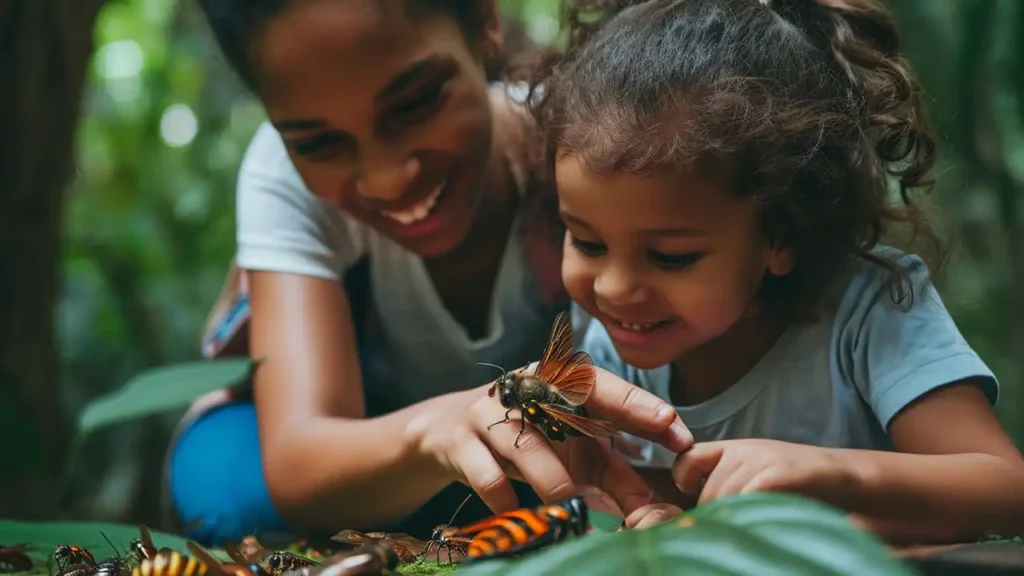
As your young explorer’s passion for insects and entomology outgrows the backyard, where can their enthusiasm take them? Having nurtured the spark during their early years, you’ve given them wings to soar to exciting new discoveries!
Finding a Community
Help research local groups, museum summer camps, workshops and online forums for budding bug enthusiasts to share knowledge beyond family and friends.
Citizen Science Projects
Get involved in conservation efforts like backyard bee counts, butterfly migrations surveys, ladybug releases, and more hands-on data collection improving scientific understanding.
College Courses
Many schools now offer specialized entomology degree tracks investigating agriculture applications, species evolution, aquatic ecosystems, taxonomy, insect physiology, and more niche interests.
Dynamic Career Paths
Young entomologists tackle global challenges like climate change impacts on pollinators, curbing invasive threats, improving agricultural pest management, researching insect-borne illnesses, and so much more.
As ambition grows, keep offering guidance, resources, and encouragement. Perhaps one day your backyard companion becomes a pioneer of exotic species discoveries, breakthrough breeding technology protecting vulnerable bees, or advocating for expanded butterfly highway corridors.
This is just the start of a beautiful friendship between your child and insects which will continue opening doors neither their tiny legs or minds can fathom just yet! The sky is no limit for budding insect enthusiasts.
Encouraging Further Interest
As your child grows more skilled at insect identification and passionate about conservation, it may be time to encourage further scientific pursuits. Help pave the way for perhaps one day having a professional entomologist in the family!
Citizen Science Initiatives
Seek out local biologist-led programs studying regional concerns like declining bee populations or invasive species spreading. Hands-on data collection builds connections.
Entomology Camps
Many zoos, nature centers, colleges and museums offer summer day camps covering unique niches from aquatic insects to forensic entomology for budding experts.
Competing in Insect Competitions
State and county fairs, museums and eco-organizations host friendly insect identification contests to test and strengthen visual classification abilities.
Volunteering
Look for age-appropriate chances to assist on the front lines at botanical gardens, nurseries, nature reserves, farms and gardens to explore possible career paths.
College Preparation
If interests solidify towards environmental science, research high school classes to take like Advanced Placement (AP) Biology, dual enrolment college courses, or Agriculture Science pathways.
As ambition grows, provide resources and moral support. Read stories of groundbreaking entomologists. Although just starting the long flight towards such lofty heights, the sky is the limit for a curious mind!
Conclusion
As you’ve learned, an interest in insects offers immense rewards for both curious young minds and invested parents. By nurturing compassionate fascination, this guide only scratches the surface of what’s possible. We hope you feel empowered to unlock adventures in your own backyard and beyond!
Witnessing your child find joy in discovering tiny marvels crawling just underfoot is truly magical. Equipping them with tools for exploration builds scientific skills for the future. Most importantly, it fosters wonder about the interconnectedness of all life, no matter how small.
We invite you to join our community of parents and junior entomology enthusiasts at Little Bug Lovers. As we continue growing our website, look forward to more insect-related games, educational activities, fascinating feature stories, virtual museum tours, new technology tools, and interactive features like insect identification challenges.
This is just the start of a beautiful friendship between your aspiring entomologist and insects which will continue opening doors to amazing worlds. As ambition takes flight, remain an engaged, compassionate guide along the journey of buzzing possibilities.
Now grab your magnifying glass and let’s start exploring! Adventure awaits in the hidden cosmos all around us.
Useful Resources
insectweek.org – Organised by the Royal Entomological Society, a resource of all things insects and events
Insects and Bugs for Kids – iPad learning app for pre-schoolers
Bug Identifier – Android app that can identify all sorts of bugs just by taking a photo!



